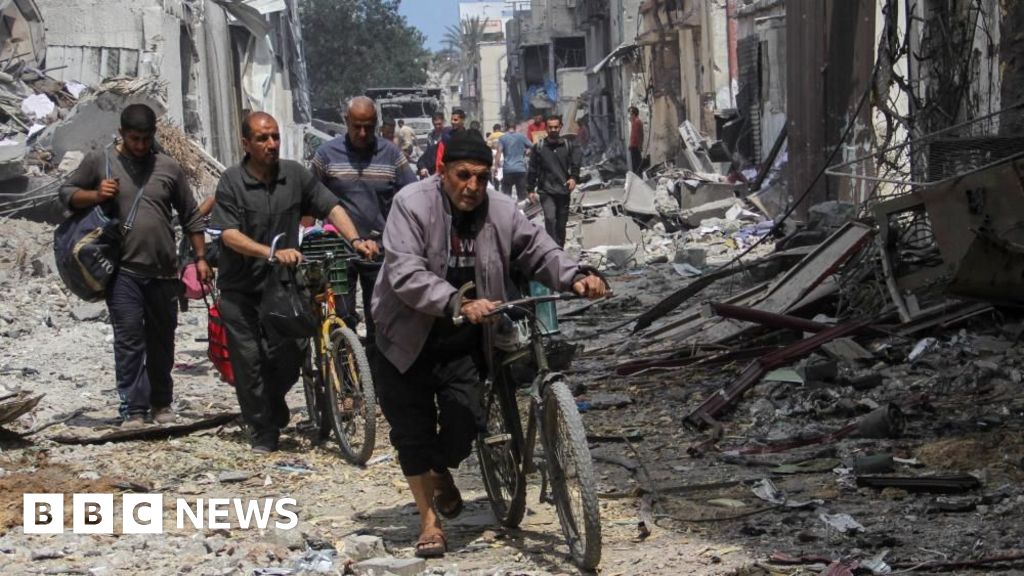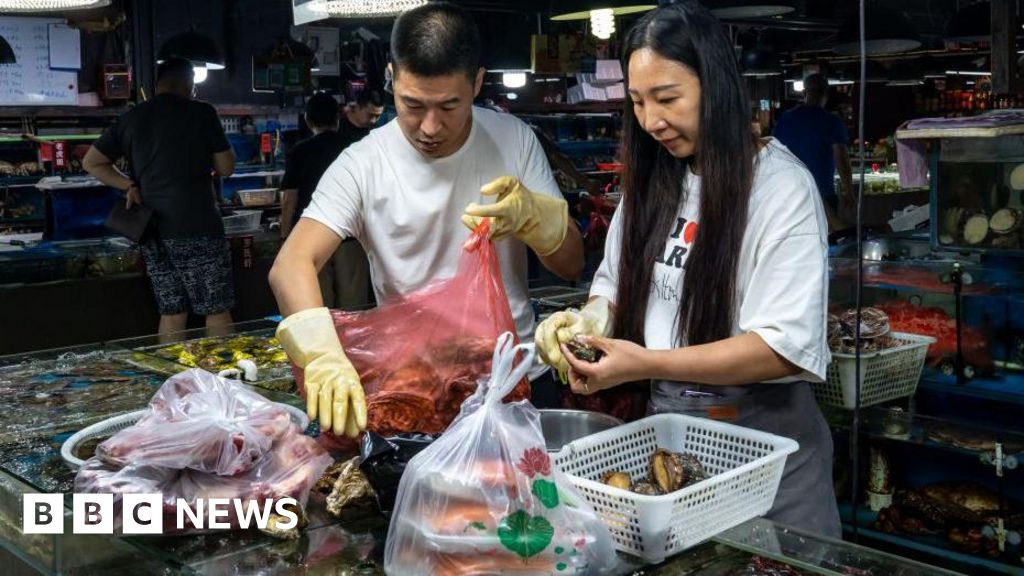Music Correspondent
 Getty Images
Getty ImagesIsrael has qualified for Eurovision’s grand final on Saturday, hours after protesters tried to disrupt the country’s dress rehearsal.
Yuval Raphael, 24, was performing New Day Will Rise during a preview show on Thursday afternoon when six people with whistles and “oversized” Palestinian flags obstructed her act. Under the arena rules, all flags are allowed but there are limits on size.
Swiss broadcaster SRG SSR, which is organising the event, said the audience members were quickly ejected from the St Jakobshalle arena.
Israel’s participation in Eurovision has been a source of controversy, as its military intensifies its bombardment of Gaza, and enforces blockades of all food and other humanitarian supplies.
 Getty Images
Getty ImagesIn recent weeks, broadcasters in Spain, Ireland and Slovenia have called for a debate on Israel’s involvement, and there have been small protests in the streets of Basel, Switzerland where this year’s contest is taking place.
The incident during Thursday’s dress rehearsal did not disrupt Raphael’s performance, and her appearance in the televised semi-final passed without further demonstrations.
Speaking to the BBC earlier this week, Raphael said her team had played audience noises over her rehearsals, “so I can practice when there is distractions in the background.”
The singer clasped her hands together, then blew a kiss towards the sky when it was announced she would progress to the final.
Despite the ongoing tension, her song is currently among the favourites to win, according to bookmakers.
Who qualified from the second semi-final?
 Getty Images
Getty ImagesThe 10 acts who succeeded in Thursday’s public vote were:
- Armenia: PARG – SURVIVOR
- Austria: JJ – Wasted Love
- Denmark: Sissal – Hallucination
- Finland: Erika Vikman – ICH KOMME
- Greece: Klavdia – Asteromáta
- Israel: Yuval Raphael – New Day Will Rise
- Latvia: Tautumeitas – Bur Man Laimi
- Lithuania: Katarsis – Tavo Akys
- Luxembourg: Laura Thorn – La Poupée Monte Le Son (pictured)
- Malta: Miriana Conte – SERVING
Which means the six countries eliminated were Australia, Czechia, Georgia, Ireland, Montenegro and Serbia.
Australia’s elimination was the biggest shock. Their innuendo-laden pop anthem Milkshake Man had received a warm reception ahead of the contest but, on the night, viewers proved to be lactose intolerant.
Ireland also crashed out, a year after Bambie Thug earned the country a sixth-place finish.
The country has now failed to qualify on eight of their last 10 attempts. The continuation of that losing streak will cause much soul-searching in the nation that’s tied with Sweden for the most Eurovision victories of all time: Seven in total.
The second semi-final also gave viewers their first chance to see the UK’s act, Remember Monday.
The girl band delivered a whimsical staging of their song, What The Hell Just Happened? – dancing around a fallen chandelier in Bridgerton-inspired outfits, as they sang about a messy night on the tiles.
With effortless three-part harmonies, they put to rest the dodgy vocal performances that plagued Olly Alexander and Mae Muller in 2024 and 2023.
And they were spared the public vote, for now. The UK automatically qualifies for the final as one of the “Big Five” countries who make outsized financial contributions to Eurovision.
 Corinne Cumming / EBU
Corinne Cumming / EBUSwedish entry KAJ are currently favourites to win the 2025 contest, with their sweaty sauna anthem Bara Bada Bastu.
Austrian counter-tenor JJ, whose operatic pop song Wasted Love is the second favourite, was one of the 10 acts voted through after Thursday’s show.
In an eye-catching performance, the 24-year-old was tossed around the stage in a rickety sailing boat, reflecting the turbulent emotional waters of his lyrics.
Elsewhere, the contest had all the traditional Eurovision trappings: Spandex, sequins, gale-force wind machines, and no fewer than 10 on-stage costume changes.
 Getty Images
Getty ImagesAmong the more novel elements were a “sand tornado” during France’s performance, and Maltese contestant Miriana Conte bouncing on a bright red medicine ball for her self-empowerment anthem, Serving.
Latvian folk band Tautumeitas took a more ethereal approach with their close-harmony incantation Bur Man Laimi, which literally translates as “a chant for happiness”.
Dressed in gold bodysuits with branch and vine detailing, they transported the audience to an enchanted forest for a song that emphasised the connection between humanity and nature.
The band were considered an outlier for the final, but leapfrogged over higher profile songs from Ireland and Czechia – precisely because they stood out.
Also making a mark was Finnish singer Erika Vikman, who ended the show with a bang.
Her track Ich Komme is a sex-positive club anthem that saw with the singer rising above the audience astride a giant, fire-spouting golden microphone.
Like her, it soared into Saturday’s grand final – where the song’s predicted to land in the top 10.
 Sarah Louise Bennett / EBU
Sarah Louise Bennett / EBUSaturday’s show will take place in Basel’s St Jackobshalle from 20:00 BST / 21:00 Swiss time.
The ceremony will be broadcast live on BBC One and BBC Radio 2, with full live commentary on the BBC News website.
Source link


















